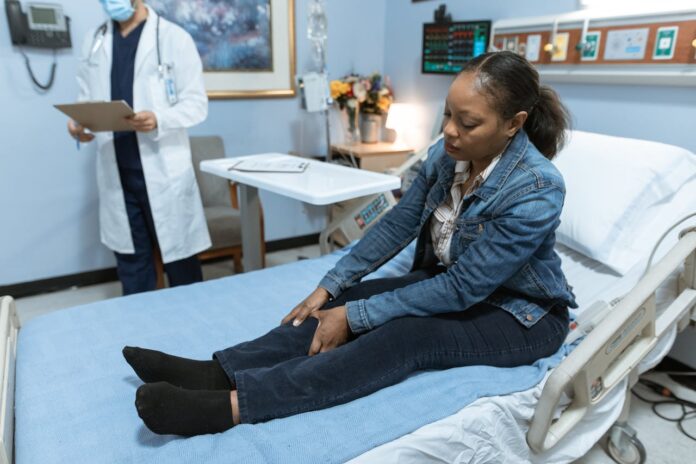Injuries, regardless of their severity or nature, can have far-reaching consequences that encompass our physical health, mental well-being, legal rights, and medical needs. Physically, injuries may limit our mobility and daily activities, requiring a period of rest, rehabilitation, and possibly surgery. On a mental level, dealing with injuries can be a daunting task, often leading to stress, anxiety, and feelings of isolation. From a medical standpoint, immediate attention and ongoing care are essential to ensure optimal recovery and avoid complications. Furthermore, understanding your legal rights is paramount as injuries can result in substantial medical expenses, loss of wages, and other unforeseen costs. This guide aims to provide insights into the crucial steps to take after getting injured, offering a comprehensive look at how to navigate this challenging situation effectively.
Ensure Immediate Safety and Seek Medical Attention
After getting injured, prioritize your safety by moving away from potential hazards. Seek immediate medical attention, regardless of the injury’s severity, as it allows for an accurate assessment of your condition and necessary treatment. Delaying medical care can lead to complications and hinder your recovery process. If you are unable to move or require urgent medical attention, call for help or ask someone nearby to do so. In fact, even if you consult with your personal injury lawyer before the accident even occurs, they would likely advise you to do these same things if you were in this situation. Make sure to document all medical treatment and keep records of any expenses incurred for potential insurance claims or legal proceedings. Especially in the case of severe or life-threatening injuries, seeking immediate medical attention is crucial for your well-being.
Document and Report the Incident
Document the circumstances surrounding the injury promptly. This includes taking photographs, noting details, and getting witness contact information. If the injury occurred at work or in a public place, promptly report it to the relevant authority. Not documenting and reporting the incident may hinder your ability to make a claim or seek compensation later on. This also applies in instances where you may not have felt immediate pain or symptoms, as injuries can manifest themselves days or weeks after the initial event. For example, symptoms of whiplash may not appear until days after a car accident. Documenting and reporting the incident will help ensure that you are protected should any issues arise in the future.
Adhere to Medical Advice
Stick to the treatment plan provided by your healthcare professional. This includes taking prescribed medication, attending follow-up appointments, and following recommended rest or therapy periods. Failure to adhere to medical advice can prolong your recovery time, leading to further complications and potentially harming your legal case. If you are unsure about any aspect of the treatment plan, seek clarification from your healthcare provider immediately. Medical advice should always take precedence over any legal proceedings, as your health is the top priority. Moreover, following medical advice can also strengthen your legal case by providing evidence of your injuries and the steps taken to treat them.
Consult Legal and Financial Advisors
Understand your legal rights and potential compensation, especially if your injury resulted from another party’s negligence. Prepare for potential financial implications, such as lost wages or medical expenses, by planning ahead and seeking advice from a financial advisor if required. Consulting with a personal injury lawyer can also provide valuable insights into your legal rights and the necessary steps to take for potential compensation. Be proactive in seeking relevant information, as it will help you make informed decisions and potentially secure better outcomes. From personal injury claims to worker’s compensation, understanding your legal and financial options can help alleviate the burden of dealing with an injury.
Maintain Physical and Mental Well-being
Injuries impact both physical and mental health. Keep up with your physical rehabilitation and seek mental health support from friends, family, or professionals. Mindfulness techniques like meditation or journaling can also be beneficial. Dealing with an injury can be stressful, and it’s essential to prioritize your well-being during this time. Engage in activities that bring you joy, and don’t hesitate to ask for help when needed. A strong support system is crucial in the recovery process. If you are struggling, reach out to a mental health professional for additional support and guidance.
Prepare for Recovery
Understand after getting injured, recovery takes time and patience. Follow medical advice, maintain healthy practices, and seek necessary support to navigate through this challenging period. Make any necessary accommodations in your daily routine to aid your recovery process. Focus on self-care and set realistic goals for yourself, both physically and mentally. If you are unable to return to work immediately, prepare financially by budgeting and seeking assistance if needed. With proper care and support, you can effectively recover from getting injured and get back to living a healthy life. Remember that seeking help and following the necessary steps are crucial for optimal recovery.
Overall, dealing with an injury can be a challenging and overwhelming experience, but by prioritizing your safety, documenting the incident, adhering to medical advice, consulting legal and financial advisors, and maintaining physical and mental well-being, you can navigate through it effectively. Remember to always prioritize your health above all else and seek help when needed. By following these crucial steps, you can ensure the best possible outcome for your recovery journey. So, after getting injured, always stay informed, take care of yourself, and trust in the process of healing. There is always a light at the end of the tunnel, and with support and determination, you can overcome any injury.


